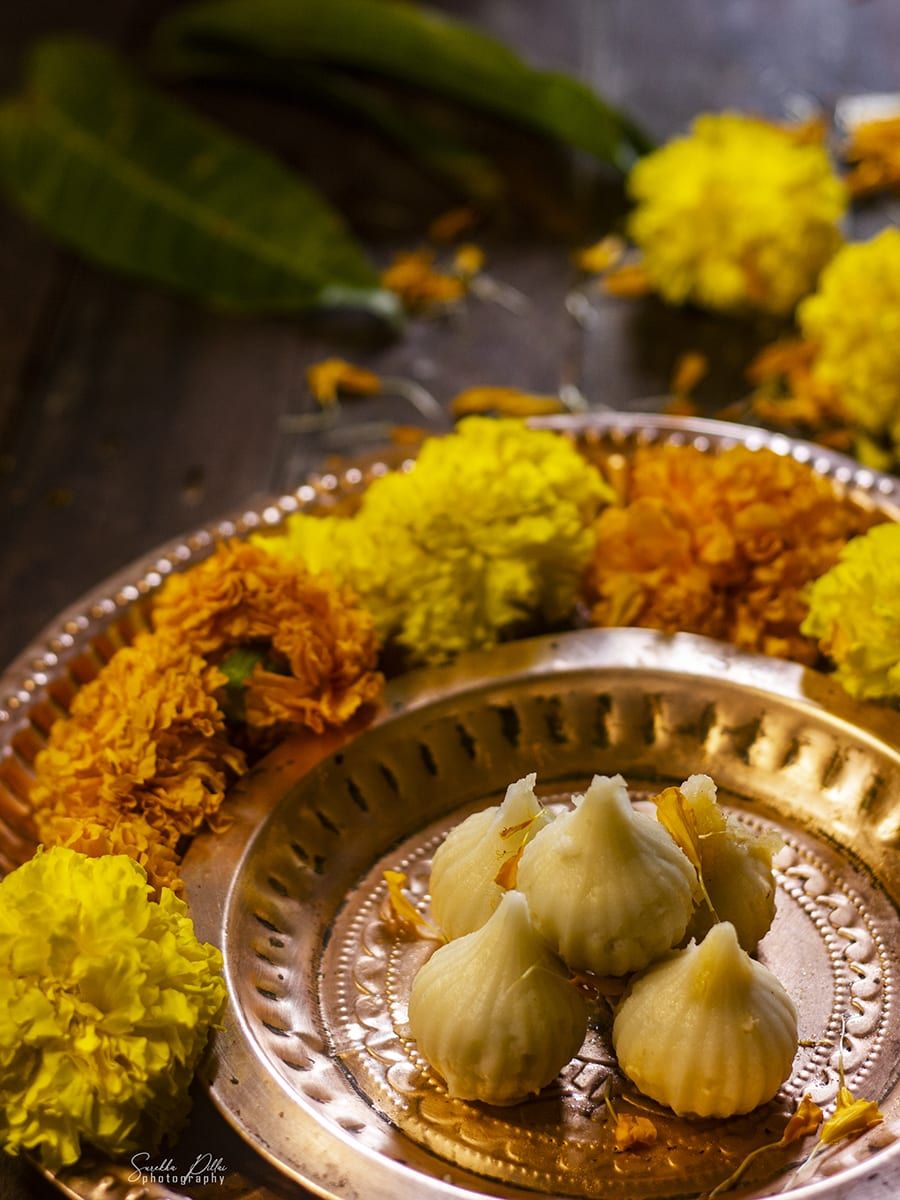Jai Sri Hari 🙂
In my childhood, the Navaratri festival was known as ‘’Puja’’, The Puja of Saraswati The Goddess of wisdom, arts, and education. For us, children ‘’Puja ‘’ meant dropping the thought of books and school bags. I loved Puja days for guilt-free playing for two days. No one is behind your back while playing. It gave such a great sense of freedom and celebration. On the evening of Ashtami books and a pencil will be kept for Puja after the evening Arti. This is called ‘’Puja Veppu’’. And from that time till the books are taken out on Vijaya Dasami we are not supposed to read or write. I followed this religiously, even I kept a tiny palm on my eyes whenever I came to see any printed matter in comic books or newspapers. On Vijaya Dasami day on the auspicious muhurta, Grandpa will make me sit on his lap, he will make me do Vidyaramba( the beginning of vidya or studies ). He will hold my finger and make me write ‘’ Hari Sri Ganapathaye Namah’’ on rice kept on a plate. For any auspicious beginning, we call it ‘’the Hari Sri’’ of things. After Vidyaramba the books will be taken out from Puja and I will immediately read the new copy of Balarama or Poompatta as if I was deprived for long. Those were the golden years of childhood.
Back to Pune, here Dussera is very colorful and the festival of marigold flowers. The entire city will look like a marigold garden with heaps of fresh flowers in every nook and cranny. This year things were a little different. I didn’t go out to see the flowers on the main road due to existing social distancing.
While going to the vegetable vendor on Maha Navami day, I found a small family, husband, wife, and two-three small children, sitting on the pavement near my home with a small heap of marigold, mango leaves, and apta leaves. The woman was neatly dressed in a green saree with golden embroidery. Their happy faces and the sight of the golden abundance made me stop near them and start a conversation.
‘’ I heard, this year the flowers are very costly’’.
The husband-wife duo replied:
‘’ Yes didi,200 rupees a kilo. Last year it was only 75 rupees. ‘’
‘’And, how much for the mango leaves? ‘’.
‘’Twenty rupees’’.
I didn’t ask the price for the dry apta leaves. They should give it free.
Meanwhile another customer came. She bought a bundle of mango leaves , took only a few leaves and returned the bundle saying , they can save the leaves for others in need. Yes, there is change. There is drastic change in attitudes of people.
I wasn’t planning to buy mango leaves. I have a mango tree in my backyard. I felt an urge to go back home and get a cartload of mango leaves for the happy family by the roadside. But somehow they looked so content with their small merchandise. I bought a pav kilo of marigold flowers and asked them to add a few apta leaves and mango leaves too. I was only too happy to leave the change also with them.” No bargaining with you people ” I said. My small collection of auspicious things packed in a piece of paper , I came back home happily, secretly hoping to meet them again the next day to take a photo for my story. Next day morning was Dussera , I got busy making sweets and forgot all about them. 🙂
This year Dussehra was small yet sweet by Divine Grace. Celebrations cannot be labeled as small or big, sometimes the biggest of festivities fail to make an impact on our hearts, but small things can fill our hearts with joy.
As promised here is the recipe for steamed sweet rice dumpling.
MODAK
1 cup of rice flour.
2 cups fresh grated coconut.
¾ cup jaggery syrup.
Jaggery syrup is mentioned in previous blogs.
1teaspoon dry ginger powder
2 teaspoons cardamom powder
2 to 3 teaspoons of ghee
Pinch of salt
2 cups of water.
Take a pan, add little ghee. Add coconut and jaggery syrup. Heat on a slow flame till the mixture is dry. Stir in between. Take it out from flame and keep for cooling.
Boil water adding a pinch of salt and a teaspoon of ghee. Add the boiled water to rice flour and mix with a spatula to make a soft dough. Take modak molds and place small amounts of dough and filling and shape to modaks. Steam them for ten to fifteen minutes. Serve hot or cold. Modaks are Lord Ganesha’s favorite in sweets. J Let us learn to make them and cherish them. Happy Celebrations !!!









Comments & Discussion
25 COMMENTS
Please login to read members' comments and participate in the discussion.